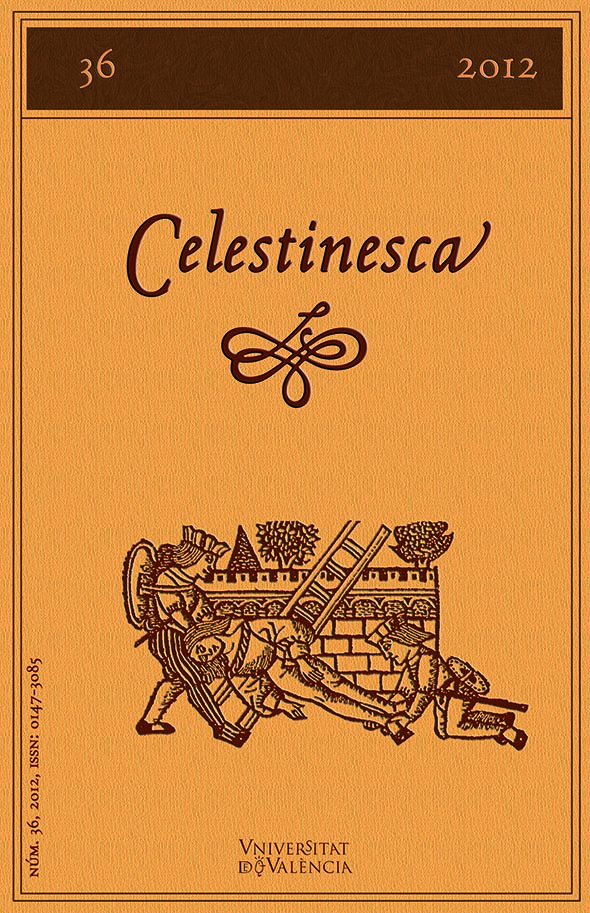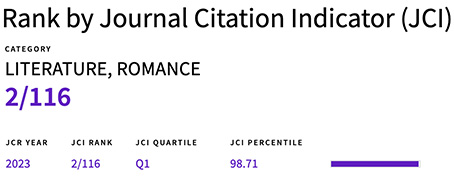Silencio o blasón. Escribir entre dos extremos
DOI:
https://doi.org/10.7203/Celestinesca.36.20150Keywords:
Celestina, Fernando de Rojas, acrostic verses, audience, moral philosophy Abstract
Abstract
The first four verses of the acrostic poem that accompanies Celestina as a preliminary text stress the importance of two concepts, silencio and blasón, to remain silent or to publish, that represent two extremes from which the author must choose a middle ground. In this article I argue that Rojas, as author of the book or, at least, as a continuator of the manuscript of the first author, adapts Aristotle's well known idea of the golden mean to his own work in two levels. First, he represents his characters deliberating between extremes when they act or when they reflect upon their actions. In a second level, Rojas, as author, also deliberates on the consequences of publishing a book (Comedia) and on the response he can give to the opinions coming from his early audience (Tragicomedia). In the dynamics between writing and reception of his own work, Rojas finds as a place of enunciation a golden mean from which articulate his didactic purpose.
 Downloads
Downloads
Downloads
Published
How to Cite
-
Abstract524
-
PDF (Español)161
Issue
Section
License
![]() Celestinesca is committed to the dissemination of knowledge, that is why access to its contents is free and is ruled by a Creative Commons Attribution-NonCommercial-NoDerivatives 4.0 license.
Celestinesca is committed to the dissemination of knowledge, that is why access to its contents is free and is ruled by a Creative Commons Attribution-NonCommercial-NoDerivatives 4.0 license.
Authors retain the rights to their works. Therefore, they can disseminate them and deposit them in the repository, institutional or not, that they wish. However, they are kindly requested to do so by providing the full bibliographic reference and the corresponding DOI.
Celestinesca does not charge authors for submitting, processing, reviewing or publishing their articles.





